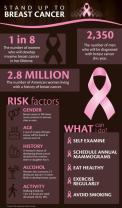How do you relieve chest tightness?
Tips for Relieving Chest Tightness
If you experience occasional, minor chest tightness without other concerning symptoms, here are some self-care tips that may help provide relief:
Try relaxation techniques
- Deep breathing exercises
- Progressive muscle relaxation
- Meditation
Use over-the-counter medications
- Antacids like Tums or Rolaids can help with heartburn and acid reflux.
- Antihistamines like Claritin or Zyrtec can help with allergy-related chest tightness.
- Pain relievers like ibuprofen may ease chest tightness related to inflammation or muscle strain.
Modify your environment
- Step outside for fresh air.
- Loosen any tight clothing.
- Have a hot caffeinated or herbal drink, which can help open airways.
If these self-care measures do not provide relief, or if the chest tightness is severe or accompanied by other concerning symptoms, promptly seek medical attention.
Let your doctor know about any accompanying symptoms and possible triggers to help diagnose and properly treat the underlying cause of your chest tightness.
Chest tightness is a distressing symptom that can have various underlying causes. Understanding these culprits is essential for effective management and relief. In this article, we will explore the common causes of chest tightness, delve into the symptoms of chest tightness accompanied by a dry cough, and provide practical solutions for managing this discomfort.
Chest Tightness Causes: Understanding the Culprits
Chest tightness can be attributed to a range of factors:
a. Medical Conditions:
- Asthma: Asthma can cause chest tightness due to airway inflammation and narrowing. It often co-occurs with wheezing and shortness of breath.
- Heart Disease: Conditions like angina and heart attacks can lead to chest tightness, often accompanied by chest pain or pressure.
- Gastroesophageal Reflux Disease (GERD): Stomach acid reflux can irritate the esophagus, causing chest discomfort and sometimes a burning sensation.
b. Respiratory Issues:
- Allergies: Allergic reactions to pollen, dust mites, or pet dander can trigger chest tightness, along with sneezing and congestion.
- Bronchitis: Inflammation of the bronchial tubes can result in chest tightness, persistent cough, and mucus production.
- Pneumonia: Lung infections like pneumonia can lead to chest discomfort, coughing, and fever.
c. Environmental Factors:
- Pollution: Exposure to air pollution and irritants can cause chest tightness, especially in individuals with respiratory sensitivities.
- Allergens: Environmental allergens can contribute to chest tightness, especially during allergy seasons.
- Cold Air: Inhaling cold air can constrict airways, leading to chest tightness.
Chest Tightness and Dry Cough: Common Symptoms Explained
Chest tightness often accompanies a dry cough, which can be attributed to several factors:
a. Respiratory Infections:
- Common Cold: Viral infections can lead to a dry cough and chest tightness, often associated with a runny or stuffy nose.
- Flu (Influenza): The flu can cause respiratory symptoms, including a dry cough and chest discomfort.
b. Allergic Reactions:
- Seasonal Allergies: Pollen and other allergens can trigger both symptoms, along with sneezing and itchy eyes.
- Environmental Allergies: Mold, dust, and pet allergens can contribute to chest tightness and coughing.
c. Gastroesophageal Reflux Disease (GERD):
- Acid Reflux: Acid from the stomach can irritate the esophagus, causing a dry cough and chest discomfort.
d. When to Seek Medical Attention:
- If chest tightness is severe, accompanied by shortness of breath, or associated with risk factors like a history of heart disease, seek immediate medical attention.
e. Home Remedies and Management:
- Stay hydrated to keep mucus thin and relieve throat irritation.
- Use a humidifier to add moisture to the air.
- Elevate your head while sleeping to reduce acid reflux.
- Over-the-counter cough suppressants may provide relief for a dry cough.
Unraveling Chest Tightness: Triggers and Solutions
Understanding the triggers for chest tightness is crucial for effective management. Consider these solutions:
a. Stress and Anxiety:
- Stress and anxiety can manifest as chest tightness. Practice relaxation techniques such as deep breathing, meditation, or yoga.
b. Physical Exertion:
- Intense physical activity can lead to exercise-induced chest tightness. Pace yourself and condition your body gradually.
c. Environmental Factors:
- Minimize exposure to pollution and allergens. Use air purifiers and maintain good indoor air quality.
- Dress warmly in cold weather to reduce the risk of cold air-induced chest tightness.
d. Medications and Treatment:
- Follow prescribed medications and treatment plans for underlying conditions like asthma or GERD.
- Consult a healthcare professional for guidance on managing chest tightness related to specific medical conditions.
e. Lifestyle Modifications:
- Make dietary changes to reduce acid reflux triggers, such as spicy or acidic foods.
- Maintain a healthy weight through a balanced diet and regular exercise.
By understanding the causes, symptoms, and solutions for chest tightness, individuals can take proactive steps to manage and reduce this discomfort, ultimately improving their quality of life. If symptoms persist or worsen, consult a healthcare provider for a thorough evaluation and personalized treatment plan.












